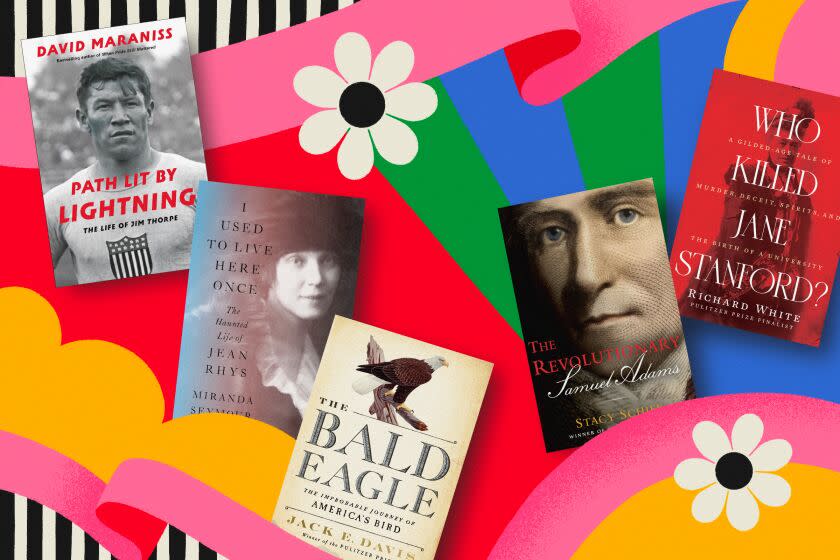The 5 best nonfiction books of 2022, according to Mary Ann Gwinn

It was a good year for veteran authors and rookies alike, for pop fiction and experimental work, memoirs and works of history. We asked four critics to name the top five books published in 2022. Here are Mary Ann Gwinn's five favorite works of nonfiction.
If you buy books linked on our site, The Times may earn a commission from Bookshop.org, whose fees support independent bookstores.
'Path Lit by Lightning: The Life of Jim Thorpe'
By David Maraniss
Simon & Schuster: 672 pages, $33
The Pulitzer Prize-winning journalist and biographer of Barack Obama and others tells the story of an Olympian’s star-crossed life with sympathy and clarity, placing it in the context of this country’s appalling treatment of Native Americans. An authority in sports, politics and American history, Maraniss uses his superior reporting and storytelling skills to vividly chronicle the highs and lows of Thorpe’s odyssey.
…
'I Used to Live Here Once: The Haunted Life of Jean Rhys'
By Miranda Seymour
Norton: 448 pages, $33
Seymour, a masterful biographer, gets to the heart of what drove the talented and tormented author of “Wide Sargasso Sea” to become a successful writer. Rhys’ surreal upbringing in the Caribbean as a “white Creole,” her years of dissolution and poverty and her struggles with addiction constitute a gripping life story, made all the more satisfying by her late triumph. Seymour tells her story with empathy, precision and a keen eye for the telling detail.
…
'The Bald Eagle: The Improbable Journey of America’s Bird'
By Jack E. Davis
Liveright: 432 pages, $30
The Pulitzer Prize-winning historian brings together politics, culture and natural history to tell the story of the bald eagle’s rescue from extinction. Memorialized on this country’s great seal as the embodiment of the American spirit, the species was almost destroyed by the nation’s lust for land and wealth, then saved by a group of visionaries who ensured its survival. A uniquely American story with an unusually happy ending.
…
'Who Killed Jane Stanford? A Gilded-Age Tale of Murder, Deceit, Spirits, and the Birth of a University'
By Richard White
Norton: 384 pages, $25
An acclaimed emeritus professor at Stanford University, White combines dogged research, superior storytelling skills and a delicious sense of irony to tell the story of the likely murder of his institution’s duplicitous and monomaniacal co-founder. Readers will marvel at the corruption and coverups that obscured the truth, all in the service of ensuring the prestigious university’s survival.
…
'The Revolutionary: Samuel Adams'
By Stacy Schiff
Little Brown: 432 pages, $35
Schiff, who won a Pulitzer for her 1999 biography of Vera Nabokov, not only has a gift for crafting narrative out of freshly interpreted history but also has a wicked sense of humor. All her talents are in evidence in this story of Founding Father Samuel Adams, a Harvard-trained businessman’s son who went rogue to fight the British, using his genius for strategy and propaganda to outwit Boston’s oppressors at every turn. Schiff paints an indelible portrait of colonial Boston and places Adams at the center of it all.
This story originally appeared in Los Angeles Times.

